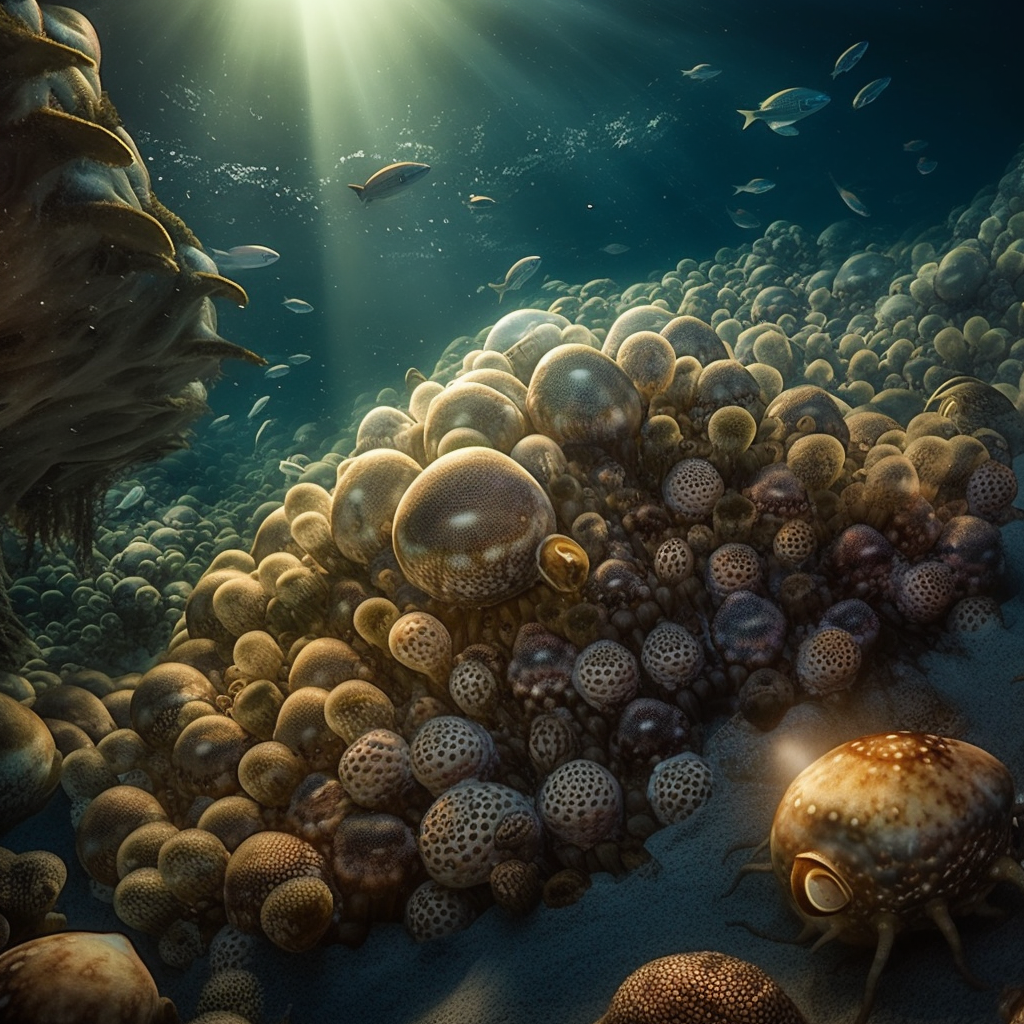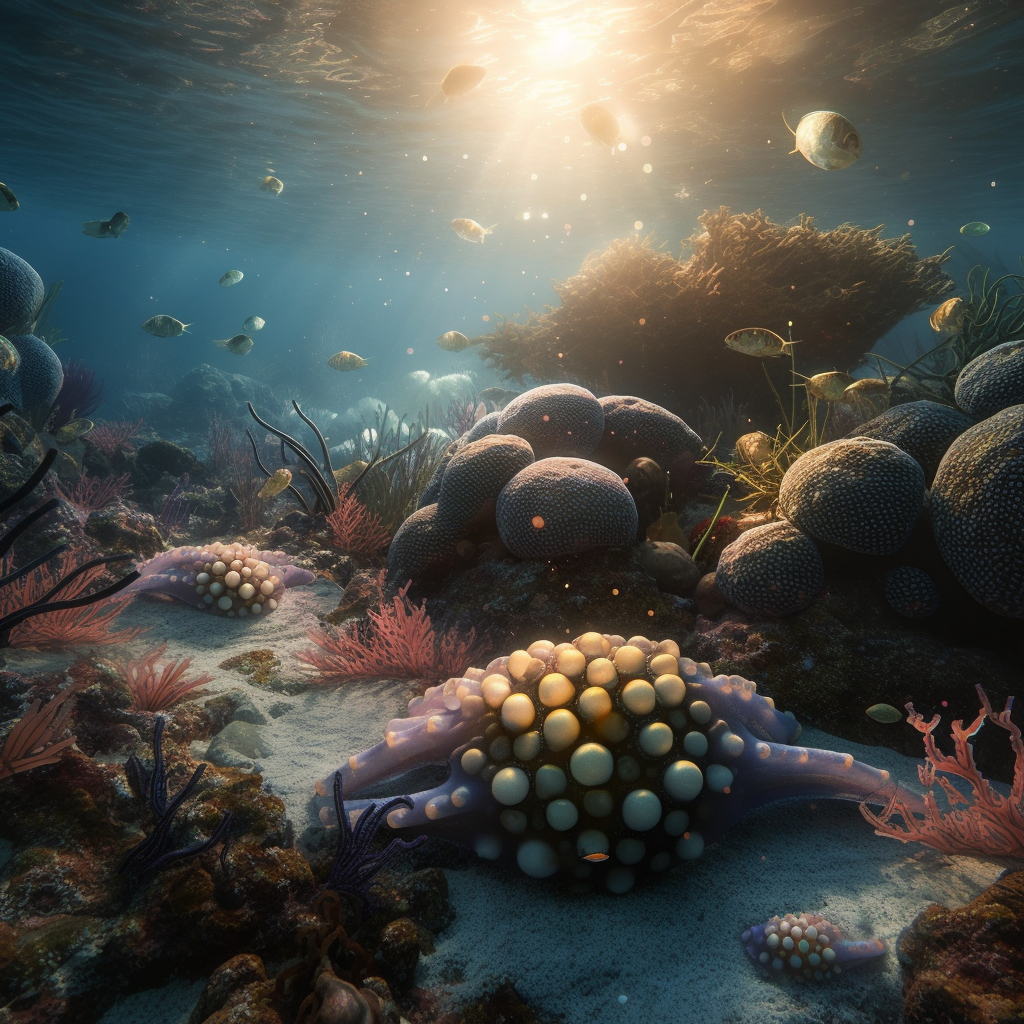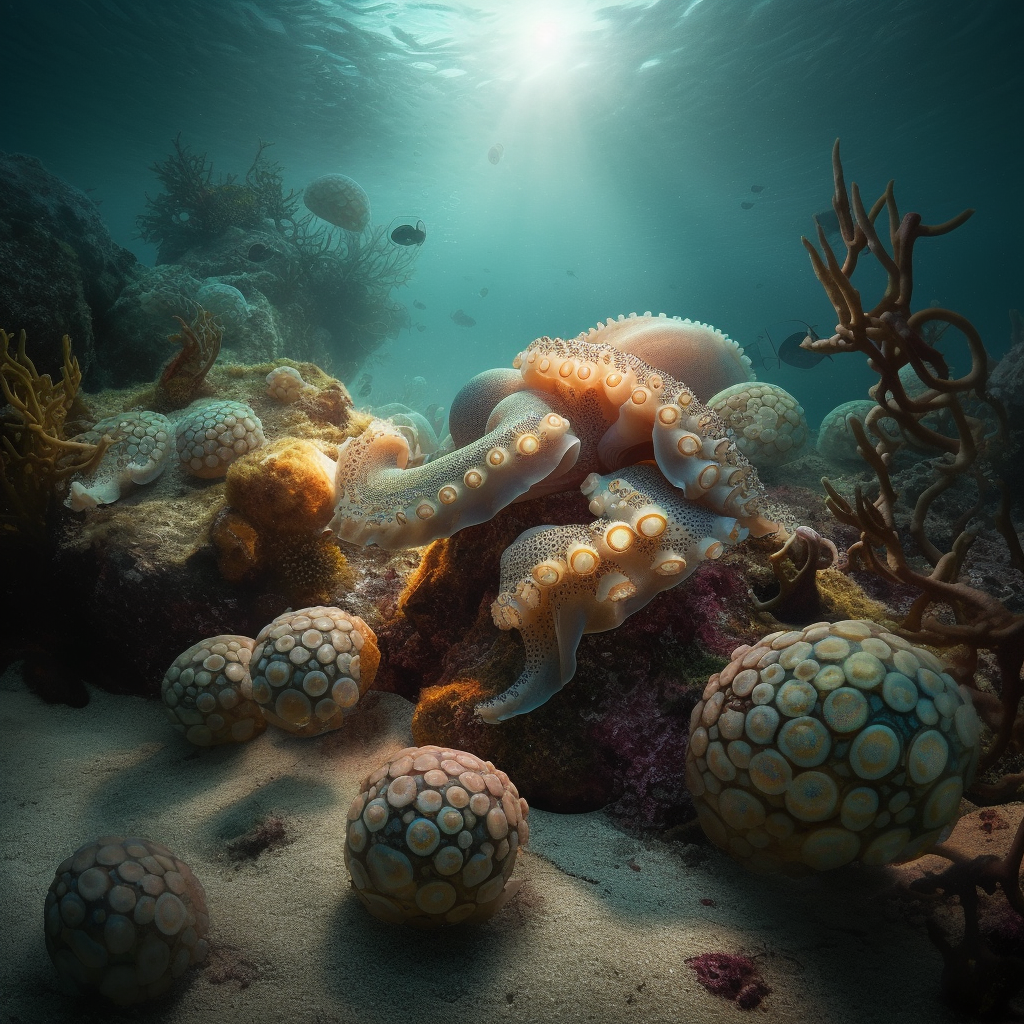Octopuses are fascinating creatures that have captured the imagination of humans for centuries. These intelligent and elusive creatures are known for their ability to change colors and shape, as well as their remarkable problem-solving skills. One aspect of octopus life that is particularly intriguing is their reproductive process. Unlike most animals, octopuses lay eggs to reproduce. But how long do these eggs take to hatch? In this article, we will explore the fascinating world of octopus reproduction and delve into the timeline of how long it takes for octopus eggs to hatch. So, let’s dive in and uncover the mysteries of the octopus nursery!
Key Takeaways
- Octopus eggs can take anywhere from several weeks to several months to hatch.
- The incubation period depends on the species of octopus and environmental conditions.
- During the incubation period, the female octopus guards and cares for the eggs.
- Once hatched, the baby octopuses are fully independent and must fend for themselves.
The Fascinating World of Octopus Reproduction

Octopuses are truly remarkable creatures, known for their intelligence, adaptability, and unique physical characteristics. But did you know that their reproductive process is just as fascinating? In this section, we will explore the intricate world of octopus reproduction, shedding light on the role of the female octopus in this process.
A. Understanding Octopus Reproduction
Octopuses have a complex reproductive cycle that involves several stages. To better understand how long octopus eggs take to hatch, it’s important to delve into the overall reproductive process.
-
Mating: The first step in octopus reproduction is mating. Male octopuses have a specialized arm called a hectocotylus, which they use to transfer sperm into the female‘s mantle cavity. This unique arm is designed to deliver the sperm directly to the female‘s eggs.
-
Egg Laying: After mating, the female octopus begins the process of laying her eggs. She carefully selects a suitable location, such as a crevice or a rocky outcrop, to create a safe environment for her eggs. The female octopus attaches the eggs to the chosen surface using a sticky substance secreted by her body.
-
Egg Incubation: Once the eggs are laid, the female octopus diligently guards and cares for them. She constantly fans the eggs with her arms to ensure a steady flow of oxygen and removes any debris that may accumulate around them. This nurturing behavior is crucial for the development and survival of the embryos inside the eggs.
B. The Role of the Female Octopus in Reproduction
The female octopus plays a vital role in the reproductive process, from mating to hatching. Let’s take a closer look at her responsibilities during this remarkable journey.
-
Egg Care: After laying her eggs, the female octopus dedicates herself to their care. She remains vigilant, guarding the eggs against potential predators and ensuring their safety. This protective behavior is essential, as the eggs are vulnerable to predation and environmental factors.
-
Incubation Period: The duration of the incubation period varies depending on the octopus species and environmental conditions. On average, it takes several weeks to several months for the eggs to hatch. During this time, the female octopus continues to provide constant care, maintaining the optimal conditions for the developing embryos.
-
Hatching: When the time comes, the eggs begin to hatch, and tiny octopuses, known as hatchlings, emerge. This is an exciting moment, as it marks the end of the female octopus’s dedicated care and the beginning of a new generation. The hatchlings are fully independent from birth and must fend for themselves in the vast ocean.
In conclusion, the process of octopus reproduction is a marvel of nature. From mating to hatching, the female octopus plays a crucial role in ensuring the survival of her offspring. The time it takes for octopus eggs to hatch varies depending on the species and environmental factors, but one thing is certain: the journey from egg to hatchling is a remarkable and awe-inspiring one.
The Journey of Octopus Eggs: From Laying to Hatching

A. The Process of Laying Eggs
Octopuses are fascinating creatures known for their intelligence and unique reproductive cycle. Unlike most animals, octopuses have a short lifespan, and reproduction is a crucial part of their life cycle. The process of laying eggs is a significant milestone in an octopus‘s life.
After mating, female octopuses carefully select a suitable location to lay their eggs. They often choose hidden crevices or dens to protect their precious cargo. The female octopus meticulously cleans the area, removing any debris or potential threats that could harm the eggs. This preparation ensures a safe and secure environment for the developing embryos.
Once the nest is ready, the female octopus begins the egg-laying process. She carefully deposits each egg into the nest, attaching them to the walls using a sticky substance secreted by her body. This adhesive ensures that the eggs remain in place and are not easily dislodged by water currents.
B. Incubation Period of Octopus Eggs
After the eggs are laid, the female octopus dedicates herself to protecting and caring for them. She diligently guards the nest, fanning the eggs with her tentacles to provide oxygen and prevent the growth of harmful bacteria. The eggs require a constant flow of fresh water to ensure their survival.
The incubation period of octopus eggs varies depending on the species. On average, it can range from several weeks to several months. Factors such as water temperature, food availability, and environmental conditions can influence the duration of the incubation period.
During this time, the female octopus remains vigilant, rarely leaving the nest to feed. She relies on her stored energy reserves to sustain herself, sacrificing her own well-being for the sake of her offspring. This selfless act of parental care is a testament to the dedication and resilience of these remarkable creatures.
C. The Duration of Octopus Egg Hatching
As the incubation period nears its end, the eggs undergo a remarkable transformation. The embryos inside the eggs develop and grow, preparing for their journey into the world. The duration of octopus egg hatching can vary, but it generally takes place over a period of several hours to a few days.
When the time comes for the eggs to hatch, the tiny hatchlings emerge one by one. They are miniature versions of their parents, equipped with all the necessary instincts and abilities to survive in their aquatic environment. The hatchlings quickly disperse into the surrounding waters, venturing out into the vast ocean to begin their own independent lives.
It is important to note that not all octopus eggs successfully hatch. Some may fail to develop or encounter unfavorable conditions that prevent their survival. However, those that do hatch represent the continuation of the octopus species and the cycle of life in the ocean.
In conclusion, the journey of octopus eggs from laying to hatching is a remarkable process that showcases the resilience and dedication of these intelligent creatures. The careful selection of a nesting site, the meticulous care provided by the female octopus, and the eventual emergence of the hatchlings all contribute to the survival and perpetuation of the octopus species. Understanding the intricacies of octopus reproduction and the duration of egg hatching provides us with a deeper appreciation for the wonders of marine life and the delicate balance of nature.
A Comparative Study: Octopus Eggs vs Squid Eggs
A. The Hatching Time of Squid Eggs
Squid eggs, much like octopus eggs, go through a fascinating incubation period before hatching into the next generation of these incredible marine creatures. While octopuses and squids both belong to the cephalopod family, there are some notable differences in the hatching time of their eggs.
When it comes to squid eggs, the hatching time can vary depending on the species. Generally, squid eggs take around 2 to 4 weeks to hatch. However, this duration can be influenced by various factors such as water temperature, availability of food, and the species of squid.
During the incubation period, female squids lay their eggs in clusters, attaching them to various surfaces in the ocean. These clusters, known as egg masses, provide protection and support for the developing embryos. The female squid carefully guards these egg masses, ensuring their safety until they hatch.
B. Differences in Incubation Periods
Octopus eggs, on the other hand, have a longer incubation period compared to squid eggs. The exact duration can vary depending on the species of octopus, but it generally ranges from several weeks to several months.
One fascinating aspect of octopus reproduction is that the female octopus dedicates a significant amount of time and effort to caring for her eggs. After mating, the female octopus lays her eggs and attaches them to a secure location, such as rocks or coral. She then diligently guards the eggs, ensuring they receive sufficient oxygen and cleaning them regularly to prevent the growth of harmful bacteria.
During the incubation period, the female octopus doesn’t leave her eggs and refrains from eating. This selfless act of parental care showcases the remarkable dedication and instinctual behavior of these intelligent creatures.
As the embryos develop within the eggs, they go through various stages of growth. Initially, the eggs are translucent and contain tiny embryos. Over time, the embryos develop more distinct features, such as eyes and tentacles. The female octopus continues to provide constant care and protection to her eggs until they are ready to hatch.
In conclusion, while both octopus and squid eggs undergo an incubation period before hatching, there are notable differences in their hatching time. Squid eggs generally hatch within 2 to 4 weeks, while octopus eggs have a longer incubation period that can range from several weeks to several months. Additionally, the level of parental care exhibited by female octopuses during the incubation period is truly remarkable. These unique characteristics contribute to the fascinating world of cephalopod reproduction and the diversity of life in our oceans.
The Prolonged Hatching Period of Octopus Eggs: An Evolutionary Advantage?
Octopuses are fascinating creatures known for their intelligence and unique adaptations. One aspect of their life cycle that stands out is the prolonged hatching period of their eggs. Unlike many other marine animals, octopus eggs take a considerable amount of time to hatch. In this section, we will explore the reasons behind this extended incubation period and discuss how it benefits the survival of these remarkable cephalopods.
A. Reasons Behind the Long Hatching Time
Octopus reproduction is a complex process that involves careful egg-laying and subsequent incubation. After mating, female octopuses lay thousands of eggs, which they carefully attach to a suitable substrate. The eggs are typically grouped together in clusters, forming a protective nursery.
One reason for the extended hatching time is the size of octopus eggs. These eggs are relatively large compared to the eggs of other marine animals. The larger size allows for a higher yolk content, which serves as a source of nutrition for the developing embryos. This ample supply of nutrients ensures that the hatchlings have a better chance of survival once they emerge from the eggs.
Another factor contributing to the prolonged hatching period is the complex development of octopus embryos. Octopuses are known for their advanced level of intelligence and complex behaviors. This complexity is also reflected in the development of their embryos. The embryos go through various stages of growth, including the formation of organs, the development of a nervous system, and the growth of specialized structures like chromatophores, which enable the octopuses to change color and blend into their surroundings.
B. Survival Strategy: The Benefits of Longer Incubation
The extended incubation period of octopus eggs serves as a survival strategy for these remarkable creatures. By prolonging the time it takes for the eggs to hatch, octopuses increase the chances of their offspring‘s survival.
-
Enhanced Development: The longer incubation period allows the embryos to undergo more extensive development inside the eggs. This extended development period ensures that the hatchlings are better equipped to face the challenges of the outside world. They have a higher chance of survival as they emerge with well-developed sensory organs, a fully functional nervous system, and the ability to camouflage themselves effectively.
-
Protection from Predators: Octopuses are known for their exceptional parenting skills. During the incubation period, the female octopus dedicates herself to guarding and caring for the eggs. She ensures that they receive adequate oxygen supply and protects them from potential predators. The longer incubation period allows the female to provide continuous care and protection, increasing the chances of the eggs surviving until they hatch.
-
Timing with Food Availability: Octopuses have a diverse diet that includes various marine organisms. The extended incubation period of their eggs often coincides with periods of high food availability. This synchronization ensures that the hatchlings have a better chance of finding abundant food sources once they hatch. By delaying hatching until favorable conditions, octopuses increase the survival rate of their offspring.
In conclusion, the prolonged hatching period of octopus eggs is not a mere coincidence but an evolutionary advantage. The extended incubation allows for enhanced development, protection from predators, and synchronization with food availability. These factors increase the survival rate of the hatchlings, ensuring the continuation of these remarkable creatures in our oceans.
The Sacrifice of Mother Octopus: Life After Laying Eggs
A. The Fate of Octopus Post Egg Laying
Once an octopus lays its eggs, its life takes a dramatic turn. The mother octopus devotes all her energy and resources to ensure the survival of her precious offspring. This period is crucial for the future generation of octopuses, as the eggs need proper care and protection to hatch successfully.
After laying her eggs, the mother octopus meticulously tends to them, guarding them against potential predators and ensuring they receive the necessary oxygen and nutrients. She remains vigilant, constantly cleaning and aerating the eggs to prevent the growth of harmful bacteria or fungi.
B. The Role of Maternal Care in Octopus Egg Survival
Maternal care plays a vital role in the survival of octopus eggs. Unlike many other marine creatures that lay their eggs and abandon them, octopuses exhibit exceptional parenting behavior. The mother octopus stays with her eggs throughout the entire incubation period, which can last anywhere from a few weeks to several months, depending on the species.
During this time, the mother octopus does not eat. She sacrifices her own well-being to ensure the optimal conditions for her eggs. This selflessness is truly remarkable, considering that octopuses are known for their voracious appetites.
To protect her eggs, the mother octopus creates a safe haven. She carefully selects a suitable location, such as a crevice or a den, where she can keep the eggs sheltered from predators and strong currents. Some species even construct intricate nests using rocks or shells to provide additional protection.
The mother octopus also uses her arms to gently fan the eggs, ensuring a constant flow of oxygen. This helps prevent the eggs from suffocating and promotes healthy development. Additionally, she may use her siphon to flush water over the eggs, keeping them clean and free from debris.
Throughout the incubation period, the mother octopus remains vigilant, constantly monitoring the eggs for any signs of trouble. If she detects any threats, she will fiercely defend her brood, using her ink to create a smokescreen and distract potential predators.
As the eggs near their hatching time, the mother octopus becomes even more attentive. She carefully watches for any signs of movement or changes in coloration, indicating that the hatchlings are ready to emerge. Once the eggs hatch, the mother octopus ensures their safe dispersal, gently guiding them away from the den and into the open ocean.
In conclusion, the sacrifice of a mother octopus after laying her eggs is truly awe-inspiring. Through her unwavering dedication and selflessness, she ensures the survival of her offspring. The intricate process of octopus egg care and the role of maternal instincts in their survival highlight the remarkable nature of these intelligent and nurturing creatures.
The Quantity vs Quality Dilemma: How Many Octopus Eggs Hatch?

Octopuses, fascinating creatures of the sea, have a unique reproductive cycle that involves laying and caring for eggs. In this section, we will explore the quantity and quality of octopus eggs and the factors that influence their hatching success.
A. The Number of Eggs Laid by an Octopus
Octopuses are known for their remarkable ability to produce a large number of eggs during the breeding season. The exact number of eggs laid by an octopus varies depending on the species, but it can range from a few hundred to tens of thousands.
The female octopus carefully selects a suitable location to lay her eggs, often choosing a hidden crevice or a den she has constructed. She then attaches the eggs to a surface, creating a protective nursery for her offspring.
B. The Percentage of Octopus Eggs that Hatch Successfully
While octopuses lay a significant number of eggs, not all of them will hatch successfully. The hatching success rate varies among different octopus species and is influenced by various factors.
One crucial factor that affects the hatching success is the care provided by the female octopus. During the incubation period, which can last anywhere from a few weeks to several months, the female octopus diligently guards and tends to her eggs. She ensures that they receive enough oxygen and protects them from predators.
Another factor that plays a role in hatching success is the environmental conditions. Octopus eggs are highly sensitive to changes in temperature, salinity, and oxygen levels. Even slight variations in these factors can impact the development of the embryos and their chances of survival.
It’s worth noting that not all octopus eggs hatch at the same time. Instead, they hatch in stages, with some eggs hatching earlier than others. This staggered hatching allows the female octopus to provide care to the hatchlings while still guarding the remaining unhatched eggs.
In conclusion, while octopuses lay a large number of eggs, the hatching success rate can vary. Factors such as the care provided by the female octopus and the environmental conditions play a crucial role in determining how many eggs will successfully hatch. By understanding these factors, we can gain a deeper appreciation for the delicate balance between quantity and quality in the world of octopus reproduction. Conclusion
In conclusion, the hatching time of octopus eggs can vary depending on the species and environmental conditions. On average, it takes anywhere from several weeks to several months for octopus eggs to hatch. Factors such as water temperature, oxygen levels, and the availability of food can all influence the development and hatching time of the eggs. It is fascinating to observe the intricate process of octopus reproduction, from the careful selection of a mate to the diligent care of the eggs until they hatch. Understanding the life cycle of these intelligent and remarkable creatures helps us appreciate the wonders of the natural world even more. So, the next time you come across an octopus egg, remember that inside lies the potential for new life, waiting to emerge into the vast ocean.
Frequently Asked Questions
How long do squid eggs take to hatch?
Squid eggs typically take between 2 to 4 weeks to hatch, depending on the species and environmental conditions. This is a part of the squid’s reproduction cycle.
How long do octopus eggs take to hatch?
The hatching time for octopus eggs varies greatly depending on the species. Some smaller species‘ eggs can hatch in as little as 30 days, while larger species like the Giant Pacific Octopus can take up to 6 months or more.
Why do octopus eggs take so long to hatch?
Octopus eggs take a long time to hatch because they undergo a complex development process. The octopus embryo growth within the egg is intricate, involving various stages of development. The longer incubation period allows for the octopus hatchlings to be more developed and self-sufficient once they hatch.
Do octopuses die after hatching eggs?
Yes, most female octopuses die shortly after their eggs hatch. This is part of the octopus’s life cycle. After laying eggs, the female octopus spends her remaining life protecting and caring for her eggs, often not eating during this period. Once the eggs hatch, the female octopus typically dies.
How long do octopus eggs incubate?
The incubation period for octopus eggs varies depending on the species. It can range from a few weeks to several months. During this time, the female octopus guards and cares for the eggs, ensuring their safety.
How many days does it take for octopus eggs to hatch?
The number of days it takes for octopus eggs to hatch can range from 30 days for smaller species to over 180 days for larger species like the Giant Pacific Octopus. The exact time depends on the species and environmental conditions.
How many octopus eggs hatch?
A female octopus can lay thousands to hundreds of thousands of eggs, depending on the species. However, due to various factors like predation and environmental conditions, only a small percentage of these eggs typically survive to hatch and reach adulthood.
How long does an octopus sit on eggs?
A female octopus will guard and care for her eggs until they hatch, which can range from a few weeks to several months depending on the species. During this time, she doesn’t leave the eggs unattended and often stops eating.
What is the octopus egg laying process?
The female octopus lays eggs in a den or crevice and guards them until they hatch. She cleans and aerates the eggs, removing any algae or debris. This care is essential for the survival of the eggs.
What are the stages of octopus egg development?
Octopus egg development stages include fertilization, cleavage (when the single egg divides into multiple cells), gastrulation (formation of germ layers), organogenesis (formation of organs), and finally hatching. This process varies in length depending on the species and environmental conditions.




